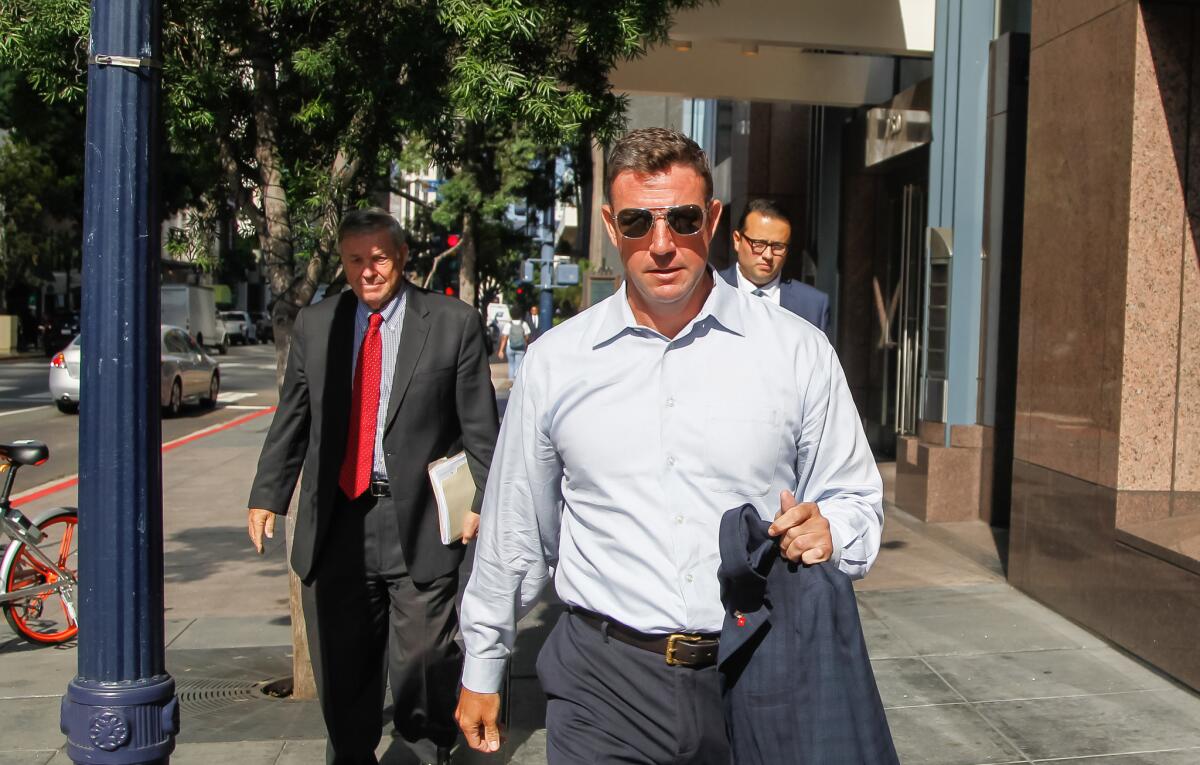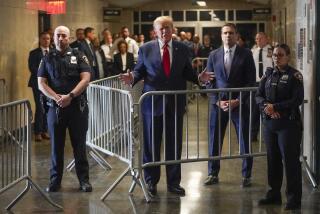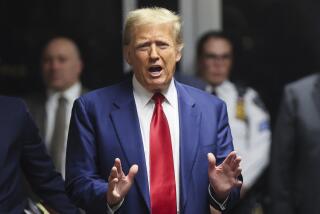Hunter’s criminal trial rescheduled for January

The trial, which is scheduled to start in four weeks, would be rescheduled for Oct. 29 under a new timeline proposed by prosecutors and defense attorneys.
A new trial date has been set for the criminal trial of Rep. Duncan Hunter; instead of Sept. 10 he will now face trial on Jan. 14, based on a court decision today.
Lawyers prosecuting and defending Rep. Duncan Hunter asked a federal judge to delay the political corruption trial so the U.S. Court of Appeals for the 9th Circuit can decide whether it will accept his appeal of the trial court judge’s refusal to grant Hunter’s motion to dismiss the indictment.
The trial, which was scheduled to start in four weeks, got a new trial date during a hearing Tuesday before U.S. District Court Judge Thomas J. Whelan. The new date will give the appellate court time to make a decision and will eliminate the risk of the month-long trial being interrupted by the fall and winter holidays.
Hunter’s lawyers plan to ask judges for the 9th Circuit U.S. Court of Appeals to dismiss charges that he spent more than $250,000 in campaign donations on girlfriends, family vacations, tuition for his children and other personal expenses.
Hunter’s defense attorney, Gregory Vega, filed a similar motion with Whelan in June arguing that some of the evidence prosecutors gathered about Hunter’s allegedly criminal conduct was protected by the speech or debate clause of the U.S. Constitution. Whelan rejected the argument, ruling that it was “wholly without merit.”
The speech or debate clause generally protects members of Congress from being prosecuted for legislative actions taken in the course of their official duties.
According to a joint filing submitted to Whelan ahead of the hearing Tuesday, Hunter will ask the appeals court to throw out the 60-count indictment filed last August. Prosecutors will then respond to that argument and a three-judge panel of the appeals court will issue a decision.
In the meantime, prosecutors plan to file what’s called a motion for dual jurisdiction, meaning the trial can proceed while the 9th Circuit mulls Hunter’s appeal.
“If the court grants the government’s motion and determines it retains jurisdiction, Mr. Hunter will seek a stay with the Court of Appeals, asking that no trial take place until after the Court of Appeals decides the government’s motion to dismiss,” the joint filing states.
Hunter was indicted in August 2018 along with his wife and former campaign manager, Margaret, on 60 counts of misusing campaign funds and covering up the crimes.
Margaret Hunter pleaded guilty to a single criminal charge in June and agreed to testify against her husband, who was reelected to a sixth term in Congress three months after the indictment.
Delaying Hunter’s trial also carries significant implications for candidates vying to replace the embattled congressman, especially on the Republican side of the ticket.
Thus far the field includes one Democrat, Ammar Campa-Najjar, and five Republicans hoping to replace Hunter: retired Navy SEAL Larry Wilske, Temecula Mayor Matt Rahn, El Cajon Mayor Bill Wells, former Escondido Mayor Sam Abed, and former San Diego City Councilman and conservative radio host Carl DeMaio.
Most of the Republican candidates have been hesitant to come right out and criticize Hunter, opting instead to bill themselves as backup candidates in case of emergency.
But with the conclusion of Hunter’s trial not expected to come until about a month before the March primary, those candidates – and the Republican Party - now find themselves in an uncertain position, according to political observers.
“The delay is very bad for Republicans, who would have been better off with an early verdict one way or the other,” said Jack Pitney, professor of political science at Claremont McKenna College, in an email.
Pitney added that had Hunter gone on trial in September and been acquitted, he would be able to resume his congressional career. Or, alternatively, if he were convicted then it would have given his would-be successors plenty of room to organize and raise money to replace him.
“Now the party is in a holding pattern,” Pitney said. “Some donors may hesitate to give to DeMaio and others for fear that Hunter might get off the hook and take names.”
McDonald, Cook and Clark write for the San Diego Union-Tribune.
More to Read
Updates
1:37 p.m. Aug. 13, 2019: The story was updated with additional information.
Start your day right
Sign up for Essential California for news, features and recommendations from the L.A. Times and beyond in your inbox six days a week.
You may occasionally receive promotional content from the Los Angeles Times.









